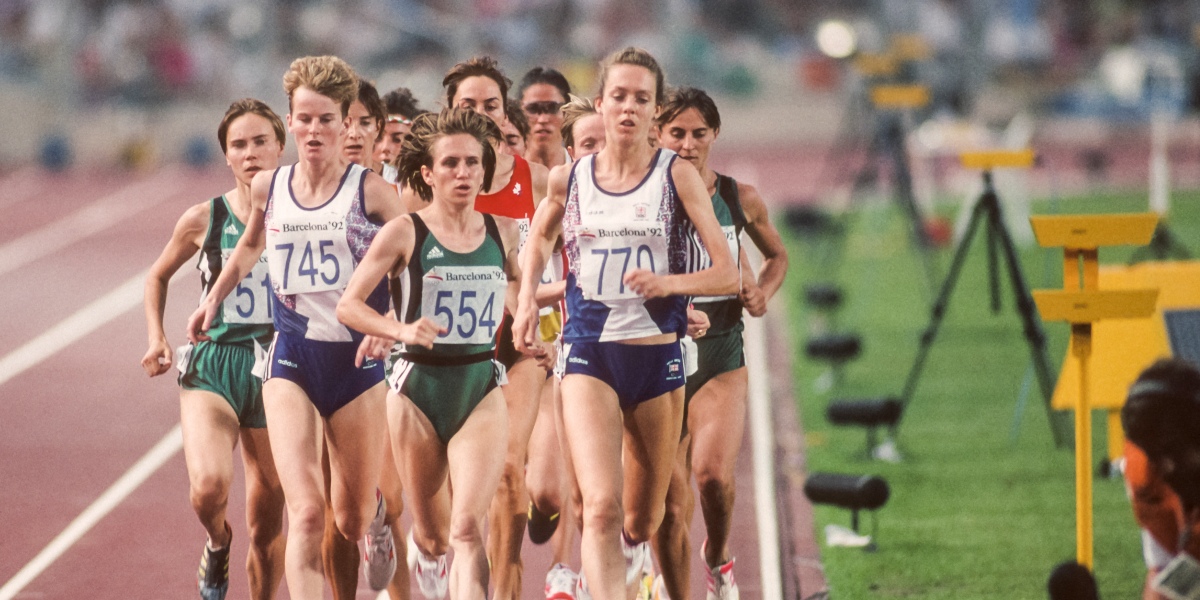
8th March 2023
MEET THE COACHES: ALISON WYETH
To celebrate International Women’s Day, UKA spoke to NFL Academy Director and former UKA employee Alison Wyeth, a two-time Olympian and former Commonwealth Games bronze medallist who was a team coach (endurance) for the Great Britain and Northern Ireland team at the World Athletics Championships in Eugene last summer.
Tell us about your journey in athletics and what led you to becoming a team coach in Eugene?
My journey in athletics is long. I started off as an athlete competing in a couple of Olympic and Commonwealth Games and a few other things. I enjoyed my time competing, but at the same time I was working for the International Amateur Athletics Association (IAAF) in their development department. I worked in athletics development in a regional capacity, then around 2000 I started working in development for England Athletics. I moved onto working as a director at the High Performance Athletics Centre in Birmingham and then a project manager for London 2012.
I’ve also held a lot of team management roles (at age group track and field championships and cross country championships). My first team management role was in cross country and Eugene was my first track and field coaching role, so I had lots of experience in other areas. I think that’s quite helpful actually, because it enables you to see both sides of the story in a way. Also, having been an athlete as well – I know it’s a long time ago – but you can remember what you like and what you don’t like and how different people react to different circumstances, so I think all of my experiences add up to helping me be a good team coach.
What key skills do you think are most important to be a good team coach?
Being able to read the room is important. Different people respond in different ways, so you need to be able to change how you are and how you respond in different circumstances.
Also, you may not always feel calm inside – there are often things happening outside of your control that you need to deal with but you might not want to deal with – but having a calm exterior is important and being able to handle those situations.
The other thing is being able to work with the athletes after their competition. Some people just need a hug when it hasn’t gone as well as they want, while other people want to be left alone. It’s really important to be able to read the room.
Some people ask your advice, but (as a team coach) it isn’t always the best thing to actually give them advice. It might be best for them to talk to their personal coach at home and see what they think. It’s often about working with the home coach and having a discussion rather than putting across your own perspective when athletes are in their final preparation for a big race.
It can be very long days at championships – how do you look after yourself as a coach to make sure you give the athletes the best of you?
In Eugene the days weren’t nearly as long as I’d experienced at other championships. I think it was spread out over a few more days. I can remember at London 2012 (in a team management capacity) the coaches were still there until well after midnight with anti-doping and things like that. It felt like the days were slightly shorter in Eugene.
I think you have to go into it well rested. I think sometimes the adrenaline of it and the fact that you enjoy what you’re doing means that you can cope with anything anyway.
Paula (Paula Dunn, team leader for the World Championships) spoke to everyone in Eugene and it was very much around making sure you look after yourself. You can’t burn the candle at both ends; you have to get rest, eat well and keep hydrated.
You were one of the first women to have a team coach role at World Championship level. How important do you think it is to have female team coaches on teams?
I didn’t really appreciate how well the athletes would respond to having someone different, a female coach, on the team. All of the conversations were so positive.
It was really nice to have Laura Turner-Alleyene on the team as well (in Eugene). We were both team members of Harrow (Parkside) through our years. We both have connections with the same coaches, so it was funny we were both on the same team!
I don’t think you have to have coached at the top level necessarily, but I think having the experience of the environment is really important when you go to a championship.
What would you say to other female coaches who have got ambitions to be team coaches at that sort of level – do you have any top tips?
Keep talking to people about it, make your thoughts known and that you’re interested in those roles. Also know what the role is – it’s not necessarily about being a highly technical coach who gives a lot of advice. Some of it’s what I call a ‘pastoral’ role, plus then being able to bring the knowledge of the environment and how people react to it and to focus more on those kinds of things.
What are your ambitions for the future?
I’d love to be part of teams again, but my main restriction now is more around my current work just because of the time commitment, but I’d love to be part of teams again in the future if I’m able to.


